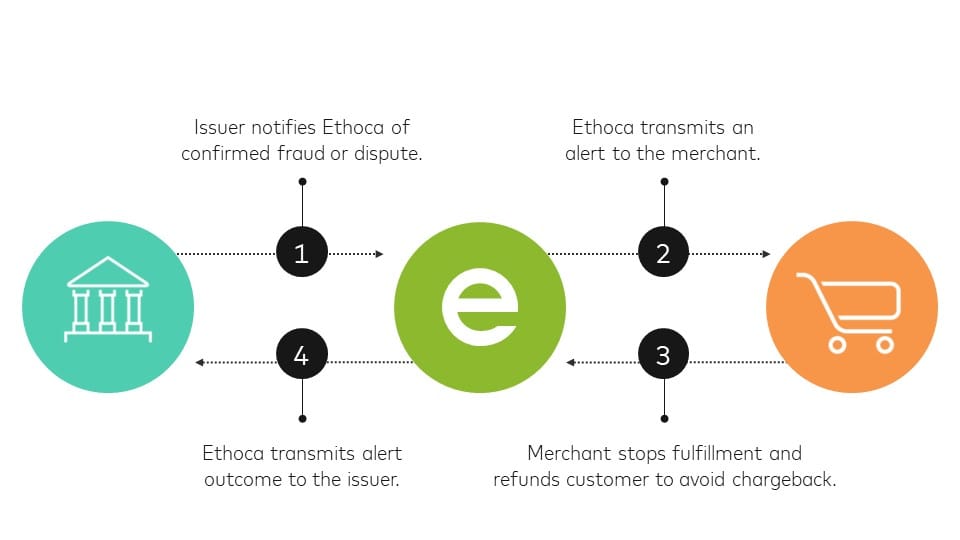
SuperPay helps bookstore owners like yourself get paid as quickly as possible. Choose our platform to power your payments & billing.
Welcome to our blog post series on Understanding Intellectual Property in Bookstores. In this digital age, the protection of intellectual property has become more important than ever, particularly for businesses like bookstores that rely heavily on creative works. Intellectual property refers to the legal rights granted to individuals or organizations for their innovative creations, such as books, trademarks, and inventions.
In this blog post, we will explore the various types of intellectual property that are relevant to bookstores and delve into how they impact the operations of these establishments. We will discuss the importance of copyrights in protecting books, the role of trademarks in distinguishing bookstore brands, and the potential for patents in bookstore innovations.
Furthermore, we will examine the implications of copyright infringements, the benefits of trademark registrations, and the patent protection strategies that bookstores can employ to safeguard their intellectual property. By understanding and implementing these measures, bookstores can ensure that their creative works and brand identity are protected from unauthorized use or imitation.
Additionally, we will discuss recent changes in intellectual property laws and their impact on bookstores. It is crucial for bookstore owners and operators to stay up-to-date with these changes and adapt their practices accordingly to avoid legal complications.
Whether you are a bookstore owner, an aspiring author, or simply interested in the world of intellectual property, this blog post series will provide you with valuable insights and practical tips to navigate the complex landscape of intellectual property in bookstores.
Stay tuned for our upcoming posts where we will dive deeper into each aspect of intellectual property and its implications for bookstores. Let's embark on this journey of understanding together and ensure that the creative works of authors and the success of bookstores are protected in the best possible way.
Introduction to Intellectual Property in Bookstores
In this section, we will provide an introduction to intellectual property in the context of bookstores. Intellectual property refers to the legal rights granted to individuals or organizations for their innovative creations. It is a broad term that encompasses various forms of intangible assets, including copyrights, trademarks, and patents.
Bookstores, as hubs of literary and creative works, play a crucial role in the distribution and promotion of intellectual property. They provide a platform for authors and publishers to showcase their works to a wide audience. However, it is essential for bookstore owners and operators to have a clear understanding of intellectual property laws to ensure that they are operating within legal boundaries and respecting the rights of creators.
In the world of bookstores, intellectual property takes on different forms. Copyrights protect the original expression of ideas in literary works, ensuring that authors have exclusive rights to reproduce, distribute, and display their books. Trademarks, on the other hand, help distinguish the brands and identities of bookstores, providing them with unique market recognition. Patents, although less common in the context of bookstores, may come into play for innovative bookstore technologies or processes.
Understanding intellectual property is vital for bookstore owners, employees, and even customers. It helps foster an environment that respects and protects creative works, encourages innovation, and ensures fair competition in the market. By comprehending the different types of intellectual property and their implications, bookstores can navigate the complex legal landscape more effectively.
In the upcoming sections, we will explore each type of intellectual property in more detail, discuss their relevance to bookstores, and delve into the specific considerations and challenges that arise in their application. So let's dive deeper into the world of intellectual property and its significance in the realm of bookstores.
Understanding the Types of Intellectual Property in Bookstores
In this section, we will explore the different types of intellectual property that are relevant to bookstores. Understanding these types of intellectual property is crucial for bookstore owners and operators to protect the creative works they sell and ensure compliance with legal requirements. Let's take a closer look at each type:
Copyrights and Books
Copyright is a form of intellectual property protection that grants exclusive rights to authors and creators of original works. In the context of bookstores, copyrights play a significant role in protecting literary works such as books, novels, poetry, and other written content. Copyright owners have the exclusive rights to reproduce, distribute, display, and perform their works, as well as the authority to create derivative works.
For bookstores, it is essential to respect and adhere to copyright laws. This includes obtaining proper licenses and permissions from copyright holders to sell and distribute books. Bookstore owners should be aware of the duration of copyright protection, which varies depending on factors such as the date of publication and the life of the author.
Trademarks in Bookstores
Trademarks are another type of intellectual property that holds great importance for bookstores. A trademark is a distinctive sign, symbol, logo, or phrase that identifies and distinguishes the source of goods or services. In the context of bookstores, trademarks help establish brand identity and differentiate one bookstore from another.
Bookstore owners should consider developing strong trademarks that are unique and memorable. Registering trademarks with the appropriate intellectual property offices provides additional legal protection and enables bookstores to enforce their exclusive rights in case of infringement.
Patents in the Context of Bookstore Operations
While patents are less commonly associated with bookstores, they can still be relevant in certain situations. Patents grant exclusive rights to inventors for new and useful inventions. In the context of bookstores, patents may come into play for innovative technologies or processes used in bookstore operations, such as unique inventory management systems or customer engagement tools.
Bookstore owners and operators should be aware of the patent requirements and procedures if they have developed any novel inventions that they wish to protect. Seeking legal advice and consulting with patent professionals can help determine if patent protection is necessary and guide them through the patent application process.
By understanding the different types of intellectual property and their relevance to bookstores, owners and operators can take the necessary steps to protect their creative works, establish a strong brand presence, and potentially safeguard innovative bookstore technologies. In the following sections, we will explore each type of intellectual property in more detail and discuss their implications for bookstore operations.

How Intellectual Property Affects Bookstore Operations
In this section, we will discuss how intellectual property rights impact bookstore operations. Understanding the implications of intellectual property is crucial for bookstore owners and operators to ensure compliance, protect their business interests, and avoid legal disputes. Let's explore the various ways intellectual property affects bookstore operations:
Implications of Copyright Infringements
Copyright infringements can have significant consequences for bookstores. Unauthorized reproduction, distribution, or display of copyrighted materials can lead to legal action, damage to reputation, and financial penalties. Bookstore owners must take measures to ensure that they are only selling authorized copies of books and respecting the rights of copyright holders.
Implementing effective copyright management strategies, such as obtaining proper licenses and permissions, conducting thorough due diligence on suppliers, and monitoring for potential infringements, is vital for bookstore operations. By doing so, bookstores can protect themselves from legal liabilities and maintain a positive relationship with authors and publishers.
Trademark Protections for Bookstores
Maintaining strong trademark protections is essential for bookstore operations. Bookstore owners should actively protect and enforce their trademarks to prevent unauthorized use or imitation by competitors. This includes monitoring the market for potential trademark infringements and taking appropriate legal action when necessary.
Bookstores should also consider the implications of trademark infringement when selecting and using names, logos, and other branding elements. Conducting thorough trademark searches and registrations can help avoid potential conflicts and ensure the exclusive use of trademarks in the marketplace.
Role of Patents in Bookstore Innovations
Although patents may not be as commonly associated with bookstore operations, they can still play a role in protecting innovative technologies or processes. Bookstore owners and operators who have developed unique systems or tools for inventory management, customer engagement, or other aspects of their operations may consider seeking patent protection.
By obtaining patents, bookstores can gain exclusive rights to their inventions, preventing others from using or profiting from similar technologies. This can give bookstores a competitive advantage and potentially generate additional revenue through licensing or partnerships.
Understanding how intellectual property affects bookstore operations allows owners and operators to navigate legal requirements, protect their business interests, and foster a culture of respect for creative works. In the next section, we will explore strategies that bookstores can employ to protect their intellectual property effectively.
Ways Bookstores Can Protect Intellectual Property
In this section, we will discuss effective strategies that bookstores can employ to protect their intellectual property. By implementing these measures, bookstore owners and operators can safeguard their creative works, brand identity, and innovative technologies. Let's explore some key ways bookstores can protect their intellectual property:
Effective Copyright Management Strategies
To protect copyrighted works, bookstores should implement robust copyright management strategies. This includes:
Obtaining Proper Licenses and Permissions: Bookstore owners should ensure they have the necessary licenses and permissions from copyright holders to sell and distribute books. This may involve obtaining licenses from publishers, authors, or relevant copyright organizations.
Conducting Due Diligence on Suppliers: Bookstores should carefully vet their suppliers to ensure they are providing authorized copies of books. Verifying the legitimacy of suppliers and ensuring they have obtained proper permissions from copyright holders is essential to avoid inadvertently selling infringing copies.
Monitoring for Infringements: Bookstores should regularly monitor for potential copyright infringements, both online and offline. This can involve using digital rights management tools, conducting periodic checks on book inventories, and staying informed about emerging copyright issues.
Importance of Trademark Registrations
Registering trademarks is crucial for bookstores to establish legal protections for their brand identity. Some key steps to protect trademarks include:
Conducting Comprehensive Trademark Searches: Before adopting a new name, logo, or slogan, bookstores should conduct thorough trademark searches to ensure there are no conflicts with existing trademarks. This helps avoid potential legal disputes and protects the uniqueness of the brand.
Registering Trademarks with Intellectual Property Offices: Bookstores should consider registering their trademarks with the appropriate intellectual property offices. This provides legal protection and exclusive rights to use the trademarks in the marketplace, making it easier to enforce those rights if infringement occurs.
Enforcing Trademark Rights: Bookstores should actively monitor the market for potential trademark infringements and take appropriate legal action when necessary. This includes sending cease and desist letters, filing infringement lawsuits, and working with intellectual property attorneys to protect their trademark rights.
Patent Protections for Bookstore Innovations
For bookstores that have developed innovative technologies or processes, seeking patent protection can be beneficial. Steps to protect inventions may include:
Conducting a Patent Search: Before pursuing a patent, bookstores should conduct a thorough search to ensure that their invention is novel and not already patented by someone else. This helps avoid unnecessary expenses and potential conflicts.
Engaging with Patent Professionals: Bookstores should consult with patent attorneys or professionals who specialize in intellectual property to guide them through the patent application process. These experts can help ensure that all necessary requirements are met and increase the chances of successful patent protection.
Maintaining Confidentiality: Bookstores should take appropriate measures to maintain the confidentiality of their inventions before filing a patent application. This may involve executing non-disclosure agreements (NDAs) with employees or partners who have access to sensitive information.
By implementing these strategies, bookstores can effectively protect their intellectual property, reduce the risk of infringement, and maintain a strong market presence. In the next section, we will explore the impact of recent changes in intellectual property law on bookstores.
Impact of Intellectual Property Law Changes on Bookstores
In this section, we will discuss the impact of recent changes in intellectual property law on bookstores. Intellectual property laws are constantly evolving, and it is crucial for bookstore owners and operators to stay informed about these changes to ensure compliance and adapt their practices accordingly. Let's explore the impact of intellectual property law changes on bookstores:
Recent Changes in Intellectual Property Law
Intellectual property laws undergo revisions and updates to keep up with technological advancements, global trade agreements, and emerging challenges in the digital age. Some key areas of recent changes include:
Copyright Law Reforms: Recent changes in copyright laws have addressed issues such as online piracy, fair use, and the protection of digital content. These reforms have implications for bookstores, particularly in the areas of digital book distribution, licensing agreements, and enforcement of copyright infringements.
Trademark Law Updates: Trademark laws have witnessed updates to address the challenges posed by online commerce, domain name disputes, and international trademark registrations. Bookstores need to be aware of these changes to protect their brand identity and prevent unauthorized use or imitation.
Patent Law Revisions: Patent laws may undergo changes to harmonize global patent systems, streamline patent examination processes, or address specific industries' needs. While patents may not be as prevalent in the bookstore industry, understanding these changes can be crucial if bookstores develop innovative technologies or processes.
Impact of These Changes on Bookstores
Changes in intellectual property laws can have a significant impact on bookstores' operations and strategies. Some key impacts include:
Compliance Requirements: Bookstores must ensure compliance with the updated copyright laws, trademark regulations, and patent provisions. This may involve adjusting their licensing agreements, updating their trademark registrations, or seeking legal advice to navigate the new legal landscape.
Digital Distribution Challenges: Changes in copyright laws, particularly in the realm of digital content, may affect how bookstores distribute and sell e-books or other digital formats. Bookstores need to understand the regulations surrounding digital rights management, licensing agreements, and online piracy prevention to protect their digital assets.
International Considerations: Intellectual property law changes may also have implications for bookstores operating in international markets. Understanding the intellectual property laws of different countries, complying with international treaties, and protecting intellectual property in global trade are essential for expanding bookstore operations.
Adapting to Intellectual Property Law Changes
To adapt to intellectual property law changes, bookstores can take several steps:
Stay Informed: Bookstore owners and operators should stay updated on the latest developments in intellectual property laws through industry publications, legal resources, and professional networks. This helps them anticipate potential changes and proactively adjust their practices.
Seek Legal Guidance: Consulting with intellectual property attorneys or professionals can provide valuable guidance on complying with the new laws, protecting intellectual property rights, and addressing any potential legal issues that may arise.
Review and Update Policies: Bookstores should review their copyright management, trademark protection, and patent strategies in light of the law changes. This includes updating internal policies and procedures to ensure compliance and mitigate risks.
By understanding the impact of intellectual property law changes and adapting their practices accordingly, bookstores can navigate the evolving legal landscape, protect their intellectual property assets, and continue to thrive in the industry.
This concludes our blog post series on Understanding Intellectual Property in Bookstores. We hope that the information provided has shed light on the importance of intellectual property, its implications for bookstores, and the strategies to protect creative works, brand identity, and innovations. Remember, staying informed and proactive is key to ensuring the long-term success of bookstores in an ever-evolving intellectual property landscape.


